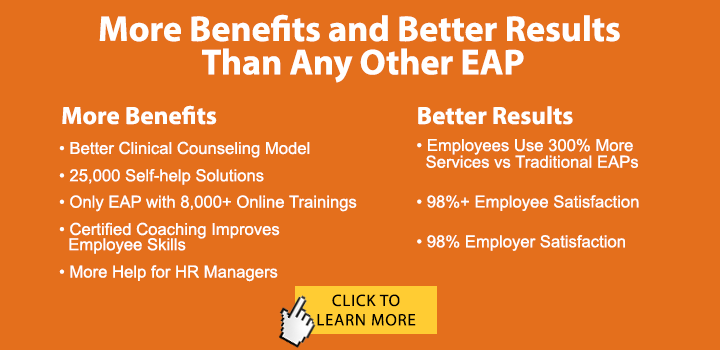In this edition of our HR News Roundup, we feature items about managing & motivating Gen Z, observations of Zelensky as a leader, post-pandemic addiction spikes, and more items of note. And because we all need humor, we close with a few items from the lighter side.
Are you the manager Gen Z needs?
Mike Monroe, Smart Brief
According to McKinsey & Co., employee-manager relationships are the top factor affecting employees’ job satisfaction. Workers will stay at a so-so position if their managers are great. But people won’t stick around for mediocre managers — even if the job is otherwise fantastic.
If you’re a middle manager, you’re one of the intangible benefits of working at your company. You need to learn how to attract, interview and supervise up-and-coming workers.
Why People Follow Certain Leaders: Lessons From Ukraine’s President Zelensky
Dr. Ruth Gotian, Forbes
What is it about this 44-year-old politician who makes everyone follow him into war and sing his praises, both in Ukraine and worldwide? What makes the Ukrainian people want to remain and fight by Zelensky’s side?
Mental health, addiction go hand in hand—and COVID is making both worse
Kathryn Mayer, Human Resource Executive
Amid the pandemic, addiction—as well as mental health conditions—has increased dramatically, including the use of alcohol and recreational drugs during the workday.
Employers, and many of the benefits they offer, have historically fallen short in helping employees cope with addiction. Even less is done on education and awareness initiatives about the issue, she says.
Related: A Nurse. A Pandemic. An Addiction.
Reminder: With high stress levels, spiking addiction, and other mental health issues, it’s a good time for Supervisors and HR Managers to remind employees about their Employee Assistance Program (EAP) benefits and services!
Should in-office workers be paid more?
Mark Johanson, BBC Worklife
Much has been discussed about whether fully remote workers should be paid lower wages – particularly if they’ve now relocated to lower-earning geographic areas. Yet, far less attention has been given to in-office workers: if they’re going to give up the benefit of working from home in 2022, will they now need to be paid for it? After all, surveys show most employees have little appetite for going back to the office full time. In fact, 54% of remote workers in a mid-February survey from business-intelligence firm Morning Consult said they would consider quitting their jobs if their companies tried to force their return.
With statistics like these in mind, some companies are now considering pay rises and perks to help soften the blow of coming back to the cubical either full time or, more likely, on a hybrid model of two to three days in the office and the rest remote. Yet, studies show that even that may not be enough for some workers, who now prize flexibility far more than compensation. Moreover, creating new compensation tiers for remote and in-office workers could actually exacerbate pay gaps for women and minorities, creating new equity problems over the coming months.
- Serious Work Injuries and Fatalities Spike as Labor Shortages Exacerbate the Problem — Make sure you train new employees in your organization’s safety and prevention protocols – particularly young summer workers. Some of the most serious causes and injuries include: 1) contact with an object or equipment 2) Falls, slips or trips 3) overexertion and bodily reaction. The most common injuries include sprains, strains and tears, followed by fractures and dislocations, and cuts, lacerations, wounds and bruises. Vehicle-related injuries are also on the increase so be sure to verify licensing and issue driving safety policies if your employees will be driving for work. Motor vehicle crashes are the leading cause of work-related deaths in the U.S.
- Get free at-home COVID-19 tests – Let your employees know: Every home in the U.S. is eligible to order 2 sets of 4 free at-home Covid-19 tests. If you already have your first set, order a second today – good to keep on hand. The tests are self-administered rapid antigen at-home tests, not PCR, giving results within 30 minutes. Learn more about how to order and frequently asked questions at the above link.
HR News Roundup – Quick Takes
- The Five-Day Workweek Is Dying. – And the implications for work and cities are going to be fascinating.
- 5 ways to cope with the stressful news cycle
- How to Use a Password Manager – These services can make all your accounts more secure. Getting started is easier than you might think.
- 4 Reasons Why Businesses Should Care About Disability Issues
- How to Avoid Every Confrontation
- 20 Ideas to Improve Equity, Diversity and Inclusion in the Workplace
- The Diversity Style Guide – Glossary with 700+ terms related to race/ethnicity, disability, immigration, sexuality and gender identity, drugs and alcohol, and geography.
- Handling hybrid: 3 tips to get the most from modern meetings
- Feeling unfulfilled or stuck at work? 3 ways to help you get unstuck
- Women in low-paying jobs are losing billions as U.S. gender pay gap persists, Labor Department says
- How to use the two-week rule to successfully reach your goals
From the Lighter Side of HR News Roundup …
- Need a stress break? Try these knot puzzles to give your brain a workout.
- If you don’t succeed at first, keep trying. Even highly successful companies experience failures. See the Museum of Failure’s collection to feel better about your day.
- Never mind failures, these kids below are all about success. See them celebrating work achievements. There should be more of this in our days.
“Obsessed with these vibes” I say as I endlessly rewatch this video of schoolchildren cheering on a construction worker every time he shovels more dirt pic.twitter.com/GvXg5dNB2n
— jonno revanche (@jonnoxrevanche) March 3, 2022
Another day, another dollar – putting on that work face …
— Scott Kerr (@scott_kerr) March 10, 2022


